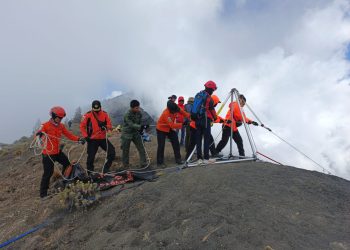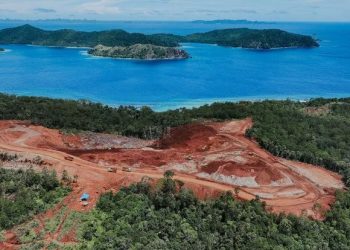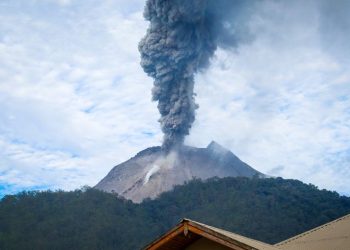Bandung, IndonesiaSentinel.com — The serious impact of sea sand exports on the environment and the damaging effects of its mining activity on the country’s coastal ecosystems, have driven Indonesia to ban this trade for nearly two decades.
Though the government recently reopened the possibility of exporting these types of sand, it remains a subject of intense debate due to the severe environmental consequences that would arise.
Sea sand is a valuable commodity in construction, particularly in land reclamation projects. However, the extraction of sea sand for export has left a destructive legacy in Indonesia. Sand mining disrupts coastal ecosystems, harms marine biodiversity, and accelerates the degradation of coastal areas. The removal of large amounts of sand destabilizes beaches and sea beds, increasing the vulnerability of coastal regions to erosion, flooding, and sinking.
Island Destruction
Indonesia is home to more than 17,000 islands, many of which have been severely impacted by sand mining activities. Some of the most glaring examples of this destruction can be seen in the Riau Islands, where extensive sand mining for export has led to the near-disappearance of several islands.
A 2003 report highlighted how at least 24 small islands in the Riau Archipelago were erased from the map due to excessive sand extraction. These islands, once home to thriving ecosystems, were mined down to the seabed, leaving nothing but open water where land once existed.
Temu Apps from China Registered in Indonesia, Said to be the MSME Killer
One prominent example is Nipah Island, where the impact of sea sand mining has made the islands threatened with sinking. From an area of around 60 hectares when the water recedes, only a pile of land remains no more than 90×50 meters when the water rises.
Possible Impacts of Reopening Sea Sand Exports
While the government has recently revised regulations to allow the export under strict conditions, concerns about the environmental impact remain. Critics argue that even with regulatory safeguards, the resumption of sea sand exports could reignite harmful practices and further endanger Indonesia’s delicate coastal ecosystems.
The reopening of sea sand exports will also encourage the resumption of mining activities. This could be a repeat of the tragedy that happened 20 years ago.
According to WALHI (the Indonesian Forum for the Environment), around 20 small islands in the regions of Riau, Maluku, and other surrounding archipelagos have already submerged. And if mining activities are to be resumed, there would be 115 small islands in deeper Indonesian waters that are at risk of sinking. Of particular concern are 83 border islands, which are Indonesia’s outermost islands, facing the threat of submersion.
Environmental activists and scientists have long argued that the impact of sea sand exports far outweigh any economic benefits. The loss of entire islands, the depletion of fisheries, and the destruction of coral reefs have had lasting consequences for Indonesia.
(Raidi/Agung)


























